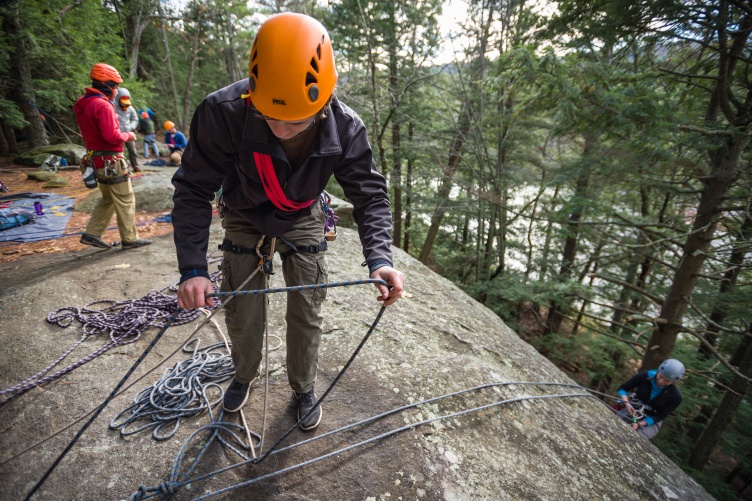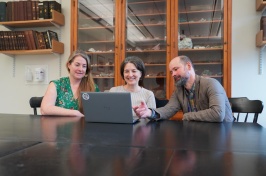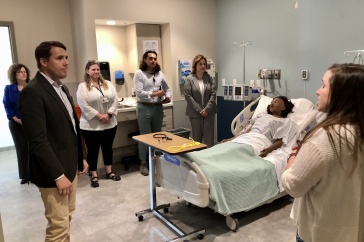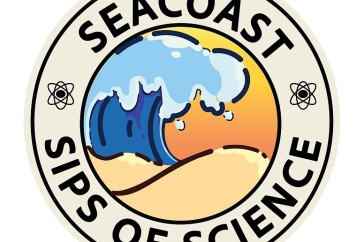
Substance use and mental health issues have become major societal problems across the United States, especially for teens. Many parents and health care professionals have found effective treatment in outdoor behavioral health care (OBH), commonly referred to as wilderness therapy. But the cost of wilderness therapy, often not covered by insurance companies, makes it inaccessible to many who might benefit from it. Now, in the first-of-its-kind study, UNH researchers have found that OBH is not only more effective but is cheaper than more traditional treatments.
“This is the last piece of the puzzle that could finally tip the scales to help families struggling to afford treatment for their kids.”
“This is the last piece of the puzzle that could finally tip the scales to help families struggling to afford treatment for their kids,” says Mike Gass, professor of outdoor education. “It offers evidence to insurance companies that it is more cost effective to provide coverage for outdoor behavioral therapy than for current forms of treatment. We already know that adolescents that go through OBH programs show almost three times more improvement after one year. Now we can say that it is also two times less expensive.”
In the study, recently published in the journal Substance Abuse: Research and Treatment, researchers looked at clients who were 13 to 17 years old who had both substance use and mental health issues. Researchers compared three different treatment options: OBH, treatment as usual (TAU) — which includes residential facilities, outpatient and other traditional health care — and no treatment at all. When adjusted for completion rates (94 percent for OBH and 37 percent for TAU), the actual cost per person for a 90-day treatment was $27,426 for outdoor behavioral therapy compared to $31,113 for treatment as usual.
“This is an exciting new era of behavioral health care,” says Gass, who co-coordinates UNH’s dual master’s degree program in adventure therapy and is director of the Outdoor Behavioral Healthcare Center. “Our hope is that health care and insurance professionals will use this information to advocate for better coverage for these clients and their families. And that it will also help those who are forgoing any treatment at all, who ultimately become a burden on society with increased trips to the emergency room, more time in jail, dependence on welfare and even death.”
OBH is a growing, innovative and therapeutic intervention for adolescents struggling with emotional, behavioral, relational and substance abuse disorders. OBH therapists not only deliver the same therapeutic elements often implemented in traditional office therapies, but also supplement these with prescriptive use of wilderness experiences (hiking, backcountry travel, rock climbing) led by licensed mental health professionals to meet the therapeutic treatment needs of clients. Programs also include group living and group therapy as well as one-on-one counseling sessions.
Co-authors on the study were Anita Tucker, UNH professor of social work and co-coordinator of the dual degree program in adventure therapy; Nicholas Brennan, a master’s degree student in UNH’s dual adventure therapy program; Thomas Wilson and Melissa Ugianskis from Trajectory Healthcare; and Brett Talbot of Redcliff Ascent.
This study was partially funded by the National Association for Therapeutic Schools and Programs (NATSAP), the Outdoor Behavioral Healthcare Council (OBHC), and the Klein Family.
-
Written By:
Robbin Ray ’82 | UNH Marketing | robbin.ray@unh.edu | 603-862-4864






















































